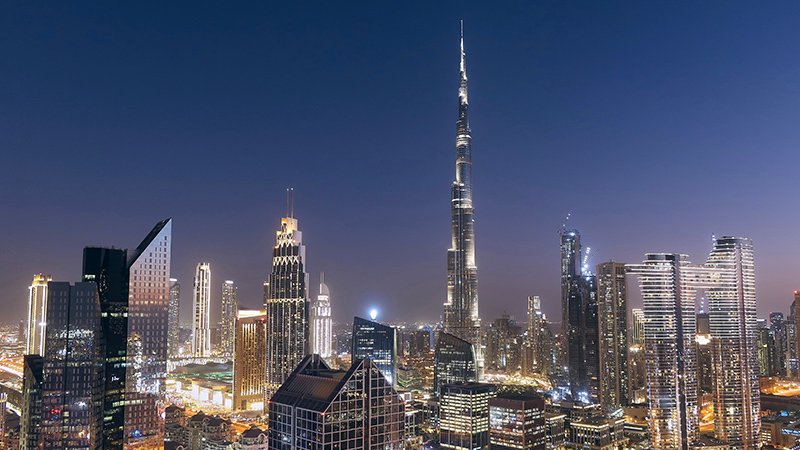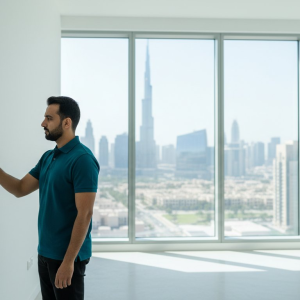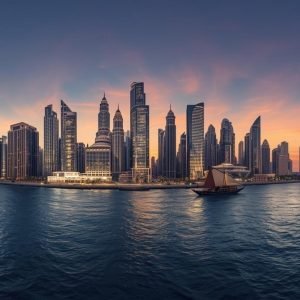The New Property Goldmine for Indian Middle Class
Dubai, long seen as a playground for the rich and elite, is now emerging as a practical and rewarding destination for India’s middle-class property buyers. Not just NRIs or billionaires—today, salaried professionals, business owners, and aspirational families from Indian cities like Delhi, Mumbai, Bengaluru, and Pune are increasingly investing in Dubai’s real estate market.
The shift isn’t merely emotional or status-driven. It’s data-backed, financially savvy, and deeply rooted in long-term goals.
As one Indian Chartered Accountant puts it, “Dubai isn’t just about luxury living anymore—it’s about financial logic. The numbers make sense. The laws are investor-friendly. And for the middle-class Indian, it offers an opportunity to globalize their wealth without the complexity or risk.”

Higher Returns, Zero Tax Burden
One of the strongest driving forces behind this migration of investment is rental yield. Indian metros, with their soaring prices and stagnating rents, often offer net returns as low as 2%–3%. Compare that to Dubai, where even mid-range apartments can yield 6%–9% annually.
And here’s the kicker—Dubai doesn’t levy income tax, capital gains tax, or property tax.

That means what you earn, you keep. For Indian investors, particularly those managing loans or sending children to international schools, every saved rupee (or dirham) counts.
This tax-free environment allows the middle-class to maximize profits, reduce financial friction, and simplify asset planning—a dream in India’s often convoluted tax structure.
Value for Money: Bigger Homes, Better Prices
A 2BHK apartment in South Mumbai or a central Delhi suburb could cost as much—or more—than a sleek, waterfront apartment in Dubai Marina or Business Bay. The value proposition is glaring.
In Dubai, a middle-class investor can own property in premium localities with cutting-edge amenities, 24/7 security, proximity to the airport, and access to international schools—all for a fraction of what they’d pay in Indian metros.
This affordability is no longer just aspirational—it’s mathematically compelling.
The Golden Visa Effect
The introduction and streamlining of Dubai’s Golden Visa system has been a game changer. Indian investors purchasing property worth a certain threshold are eligible for long-term residency visas—often up to 10 years.
This appeals immensely to middle-class families seeking security, global mobility, and future prospects for their children. It opens doors to top-notch education, healthcare, and the ability to live and work in a global hub without the uncertainties of short-term visas.
For many families, this visa transforms property ownership from an investment into a lifestyle gateway.
Installments That Work for the Middle-Class
Dubai’s real estate developers have cracked the code: if you want to attract middle-income investors, make buying easy.
And they have.
From 1% monthly installments to post-handover payment plans spread over 5–10 years, Dubai’s property ecosystem is designed for accessibility and flexibility. There’s no need to cough up a massive lump sum. Buyers can step into ownership with a manageable down payment and staggered EMIs.
This bridges the gap between aspiration and action, especially for young professionals or first-time investors who would otherwise find property ownership daunting.
Stability, Security, and Economic Predictability
Dubai’s real estate market has seen a steady rise, fueled by sound government regulations, infrastructural innovation, and economic diversification.
Unlike India, where property prices are heavily impacted by local politics, inconsistent policy, and frequent delays, Dubai offers a transparent, investor-friendly system. Escrow accounts, prompt project delivery, and government-backed registries build confidence.
Additionally, Dubai’s currency is pegged to the US dollar, ensuring stronger protection from inflation and exchange rate volatility—a major plus for Indian investors looking to safeguard their capital.
Close to Home, Yet Global
Dubai’s proximity to India plays a silent but significant role in this shift. With major cities like Delhi, Mumbai, and Kochi just a few hours away by flight, property owners can travel frequently, manage their assets personally, or even relocate seasonally.

The cultural familiarity—be it Indian restaurants, festivals, or a massive diaspora—makes it easier for families to adapt. CBSE schools, Hindi-speaking communities, and Indian-run businesses soften the learning curve.
It offers the best of both worlds: global exposure with local comfort.
Lifestyle Upgrade Without the Price Tag
It’s not just about owning a property. It’s about the quality of life that comes with it.
Dubai scores high on global rankings for safety, cleanliness, infrastructure, and healthcare. Families moving from crowded Indian cities experience immediate benefits—less pollution, better roads, organized services, and more reliable public utilities.
For the middle-class Indian, this feels like an upgrade in dignity, peace of mind, and day-to-day living—not just an investment.
Middle-Class Success Stories: A New Narrative
The stories are becoming increasingly common.
A young IT couple from Bengaluru invests in a one-bedroom unit in Dubai’s Arjan area. They rent it out on short-term lease platforms, earning steady monthly income while continuing to live in India.
A retired teacher from Pune purchases a compact studio with savings and pension benefits, intending to spend winters in Dubai and summers in India.
A small business owner from Jaipur collaborates with a cousin to co-own an apartment in Jumeirah Village Circle, enjoying rental returns and planning to send his children to a school there in the future.
These aren’t exceptions anymore—they are the new face of Indian real estate investing.
What Chartered Accountants Are Advising
Chartered Accountants, traditionally seen as conservative financial advisors, are now advocating for international portfolio diversification, especially through real estate.
The common refrain is: “Don’t park all your wealth in one geography. Indian property markets are slow, bureaucratic, and overregulated. Dubai offers structure, clarity, and potential.”
For clients earning in rupees but dreaming in dollars, Dubai provides a middle ground: affordable entry, long-term vision, and global identity.
Risks and Smart Steps

Like any market, Dubai isn’t without its risks. Developers may delay projects, rental demand can fluctuate, and market corrections do occur. But compared to Indian cities, where litigation, encroachments, or disputed ownership plague buyers, Dubai’s legal systems offer a higher level of reliability.
CAs advise investors to:
- Check the developer’s credibility
- Understand payment plans thoroughly
- Plan long-term: either rent or live, not flip quickly
- Diversify: don’t sell Indian assets overnight
Middle-class Indians, they say, should look at this as a stepping stone to financial empowerment, not an escape route.
The Emotional Factor
It’s not just money. There’s a quiet emotional evolution happening.
Indian families, especially millennials and Gen Z earners, are increasingly thinking global. They want their children to study abroad, their parents to retire with dignity, and their investments to grow in safe, future-ready environments.
Dubai gives them a sense of control, a sense of progress, and a sense of belonging to a new world order.
And it does so with minimum drama.
Final Thoughts
Middle-class Indians are no longer sitting on the sidelines. They’re researching, comparing, evaluating—and acting.
Dubai’s real estate offers an extraordinary mix: affordability, returns, lifestyle, safety, and long-term benefits. It ticks boxes that Indian property markets often miss, especially for buyers without deep pockets.
This isn’t a fleeting trend. It’s a tectonic shift in mindset, powered by information, ambition, and new-age global access.
As a Chartered Accountant wisely puts it: “Earlier, global property was for the rich. Today, it’s for the wise.”
Do follow UAE Stories on Instagram
Read More: HuQQabaz Garden: A Green Escape for Your Next Lunch Break in Dubai












